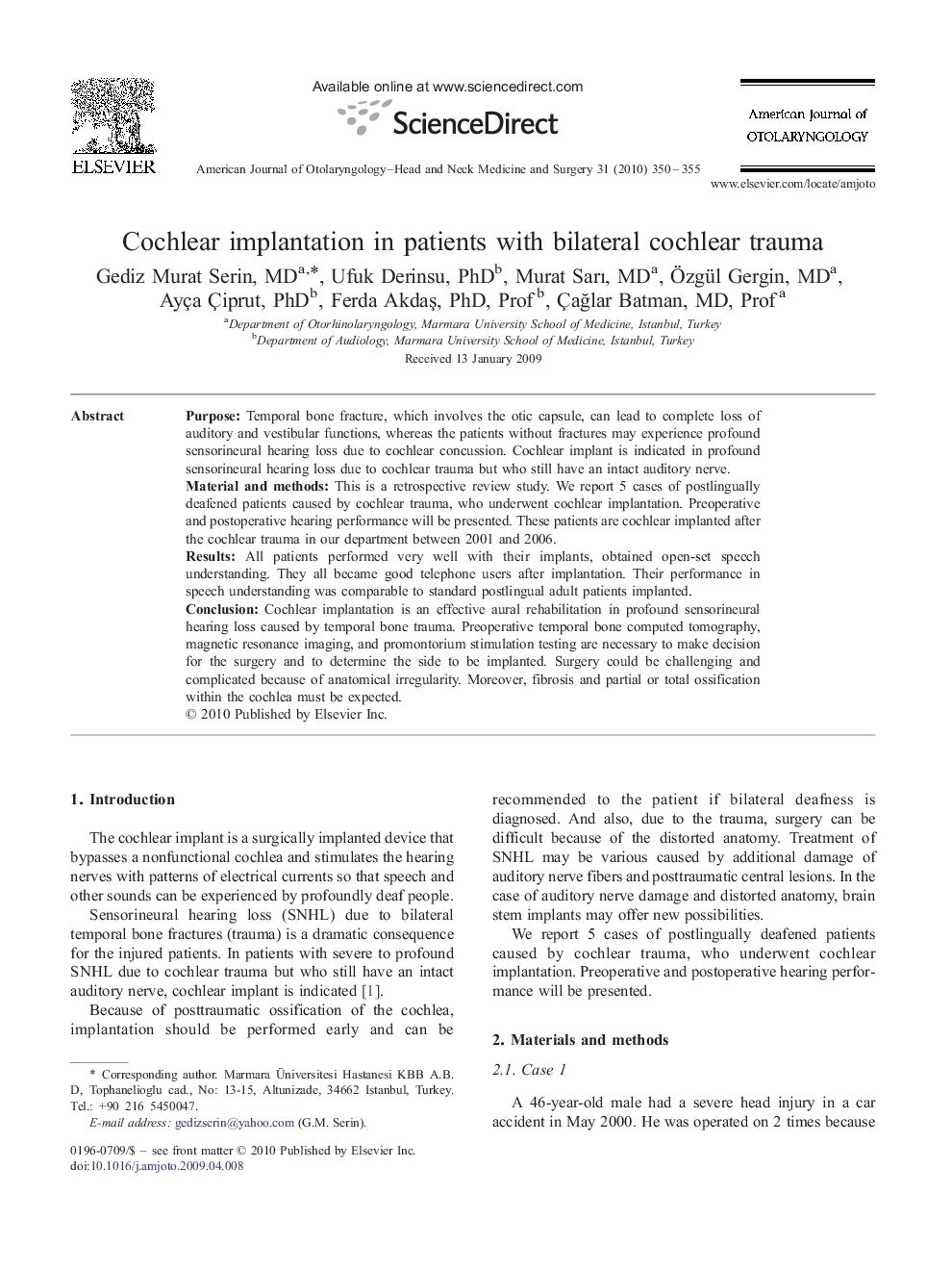| Article ID | Journal | Published Year | Pages | File Type |
|---|---|---|---|---|
| 4103987 | American Journal of Otolaryngology | 2010 | 6 Pages |
PurposeTemporal bone fracture, which involves the otic capsule, can lead to complete loss of auditory and vestibular functions, whereas the patients without fractures may experience profound sensorineural hearing loss due to cochlear concussion. Cochlear implant is indicated in profound sensorineural hearing loss due to cochlear trauma but who still have an intact auditory nerve.Material and methodsThis is a retrospective review study. We report 5 cases of postlingually deafened patients caused by cochlear trauma, who underwent cochlear implantation. Preoperative and postoperative hearing performance will be presented. These patients are cochlear implanted after the cochlear trauma in our department between 2001 and 2006.ResultsAll patients performed very well with their implants, obtained open-set speech understanding. They all became good telephone users after implantation. Their performance in speech understanding was comparable to standard postlingual adult patients implanted.ConclusionCochlear implantation is an effective aural rehabilitation in profound sensorineural hearing loss caused by temporal bone trauma. Preoperative temporal bone computed tomography, magnetic resonance imaging, and promontorium stimulation testing are necessary to make decision for the surgery and to determine the side to be implanted. Surgery could be challenging and complicated because of anatomical irregularity. Moreover, fibrosis and partial or total ossification within the cochlea must be expected.
